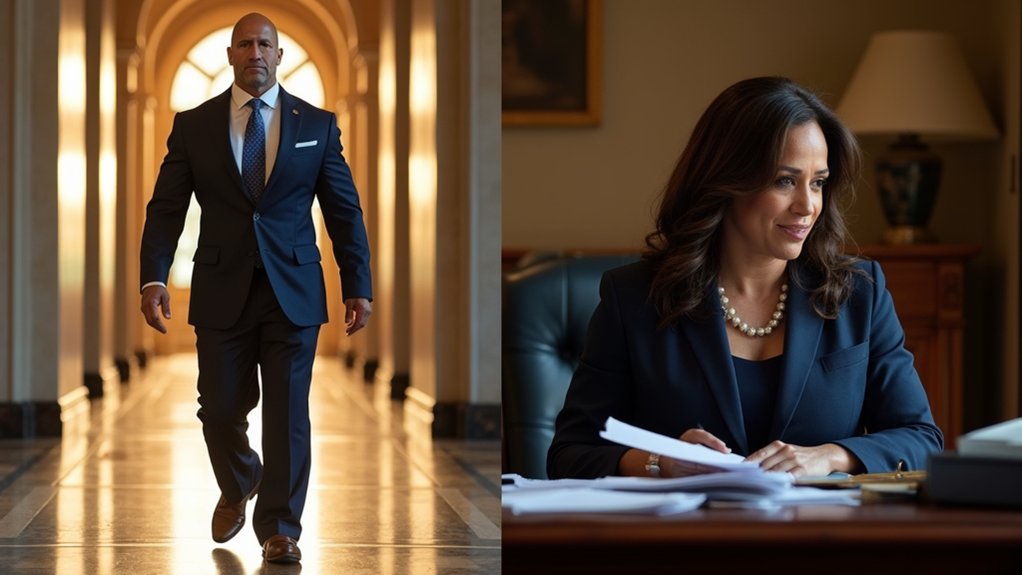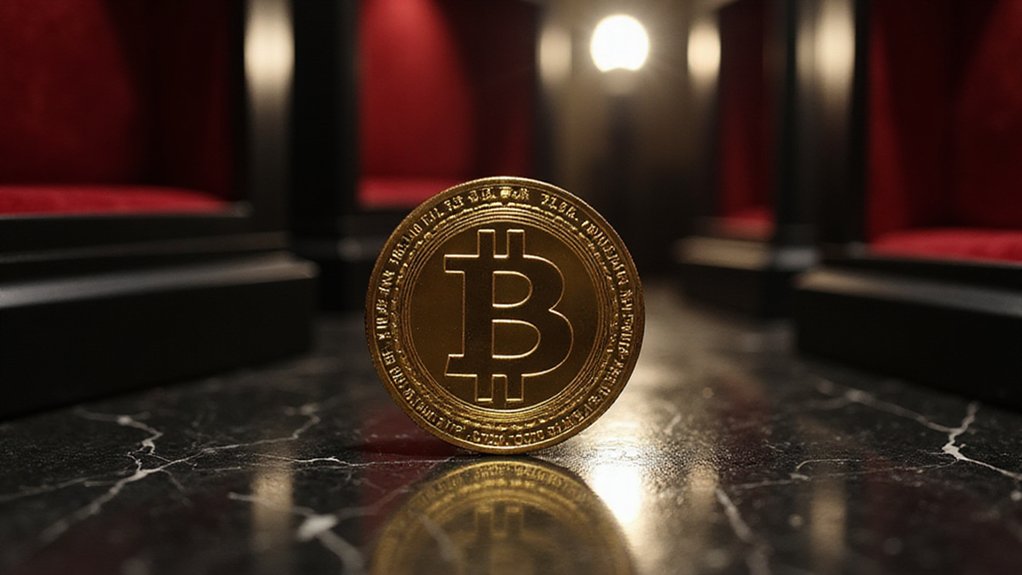The peculiar alchemy of prediction markets has produced yet another bewildering confluence of celebrity culture and electoral speculation, with Dwayne “The Rock” Johnson now commanding higher odds than former Vice President Kamala Harris for the 2028 Democratic presidential nomination.
On Polymarket, the decentralized prediction platform that has become the de facto barometer for political prognostication, Johnson holds a 7-8% implied probability while Harris languishes at 5%—a statistical inversion that would have seemed absurd in any previous electoral cycle.
This ranking places Johnson fourth among Democratic contenders, trailing only California Governor Gavin Newsom (31%), Representative Alexandria Ocasio-Cortez (11%), and former South Bend Mayor Pete Buttigieg (7%).
The fact that a former WWE wrestler turned blockbuster actor occupies the same probability tier as seasoned politicians speaks to either the market’s sophisticated understanding of electability dynamics or its complete detachment from political reality.
The $17 million in betting volume suggests traders are taking these outcomes seriously, despite Johnson’s complete absence from traditional political engagement. The market is scheduled to reach its resolution date on November 7, 2028, when official Democratic Party sources will determine the final outcome.
His crossover appeal—cultivated through wrestling theatrics and franchise filmmaking—apparently translates into market confidence that surpasses Harris’s extensive governmental experience and previous Democratic Party leadership roles.
Polymarket’s recent legitimacy boost, secured through investment from 1789 Capital and Donald Trump Jr.’s advisory board appointment, lends institutional weight to these seemingly fantastical valuations. The platform’s blockchain infrastructure eliminates intermediaries and allows continuous trading where prices adjust based on new information and trader sentiment.
Yet the platform’s methodology remains fundamentally speculative, driven by trader sentiment rather than campaign infrastructure or policy platforms.
Johnson has made no public commitment to seeking office, rendering his market position purely theoretical. Johnson’s celebrity status could potentially attract diverse segments of the electorate beyond traditional Democratic voting blocs, creating unique coalition-building opportunities.
Harris’s 5% probability, shared with Kentucky Governor Andy Beshear, reflects apparent skepticism about her 2028 viability despite her vice-presidential tenure.
The market’s preference for celebrity recognition over political pedigree suggests that traditional electoral calculations may be yielding to entertainment value and perceived outsider appeal.
Whether these odds represent prescient crowd wisdom or speculative folly remains unclear, but they undeniably illustrate how prediction markets have transformed political discourse into another asset class—one where Hollywood charisma commands higher premiums than Washington experience.









